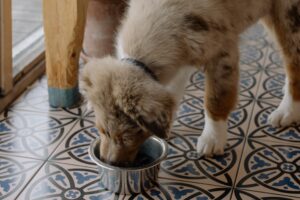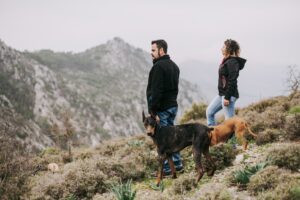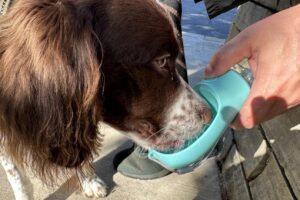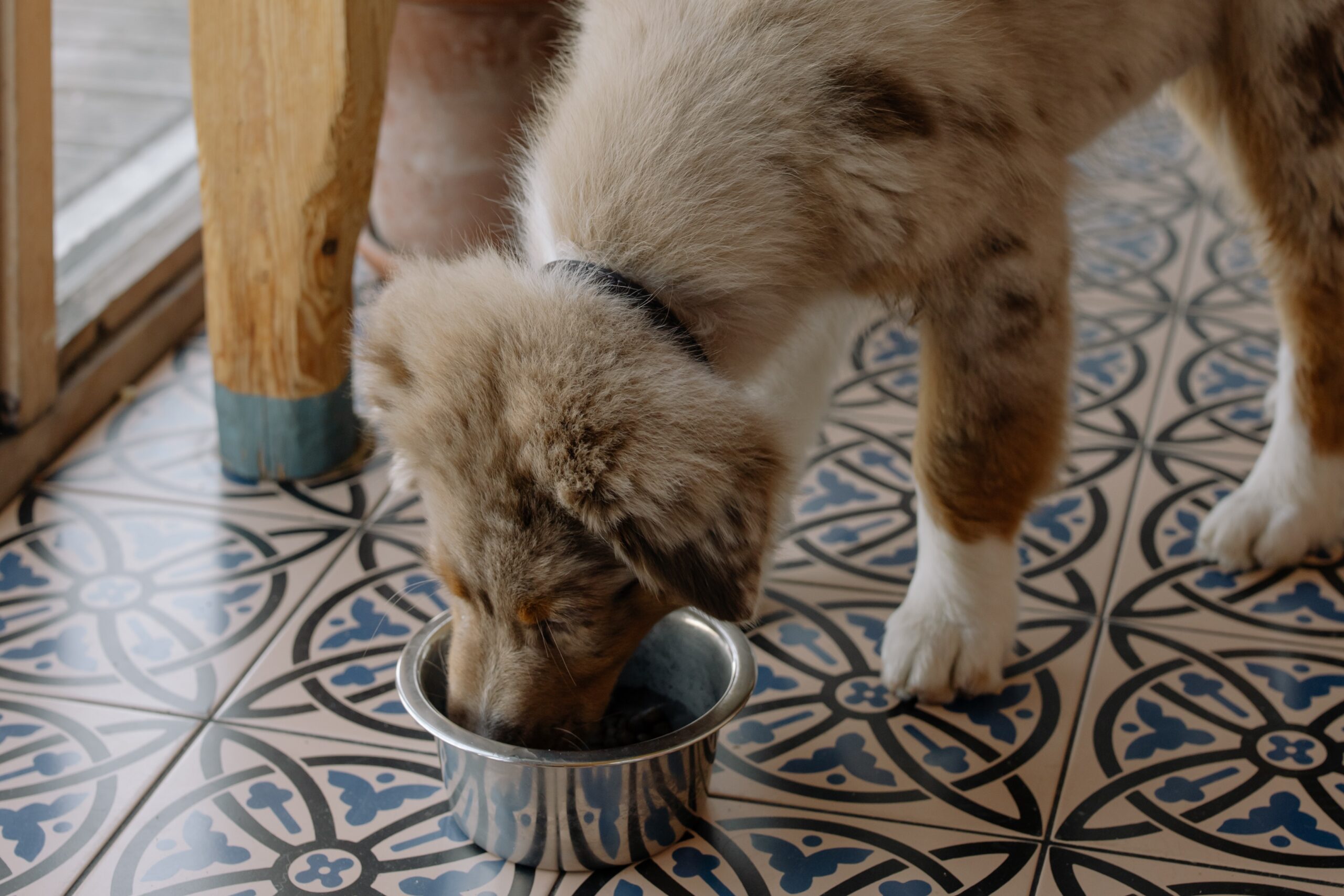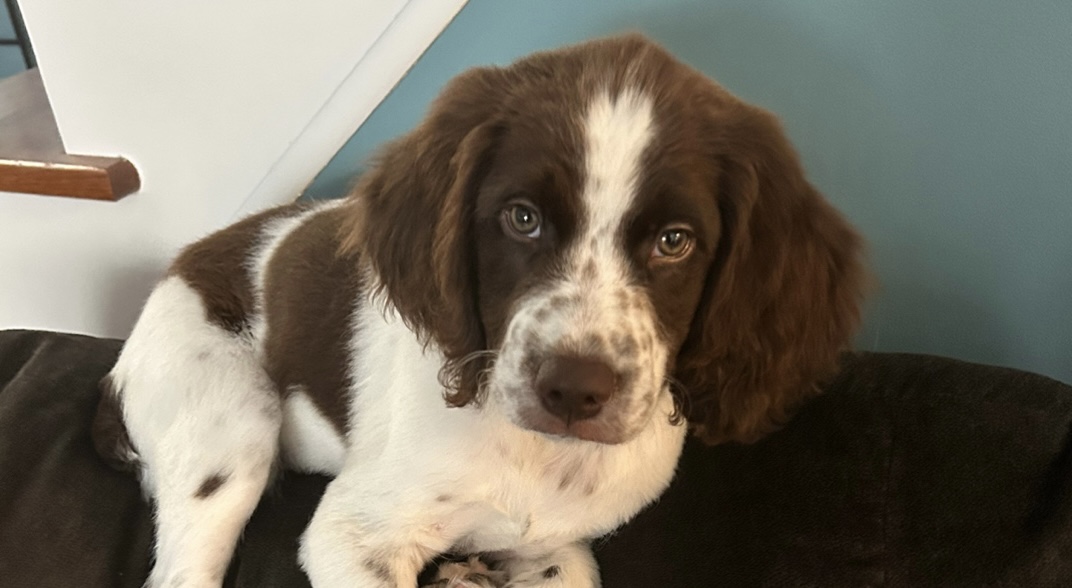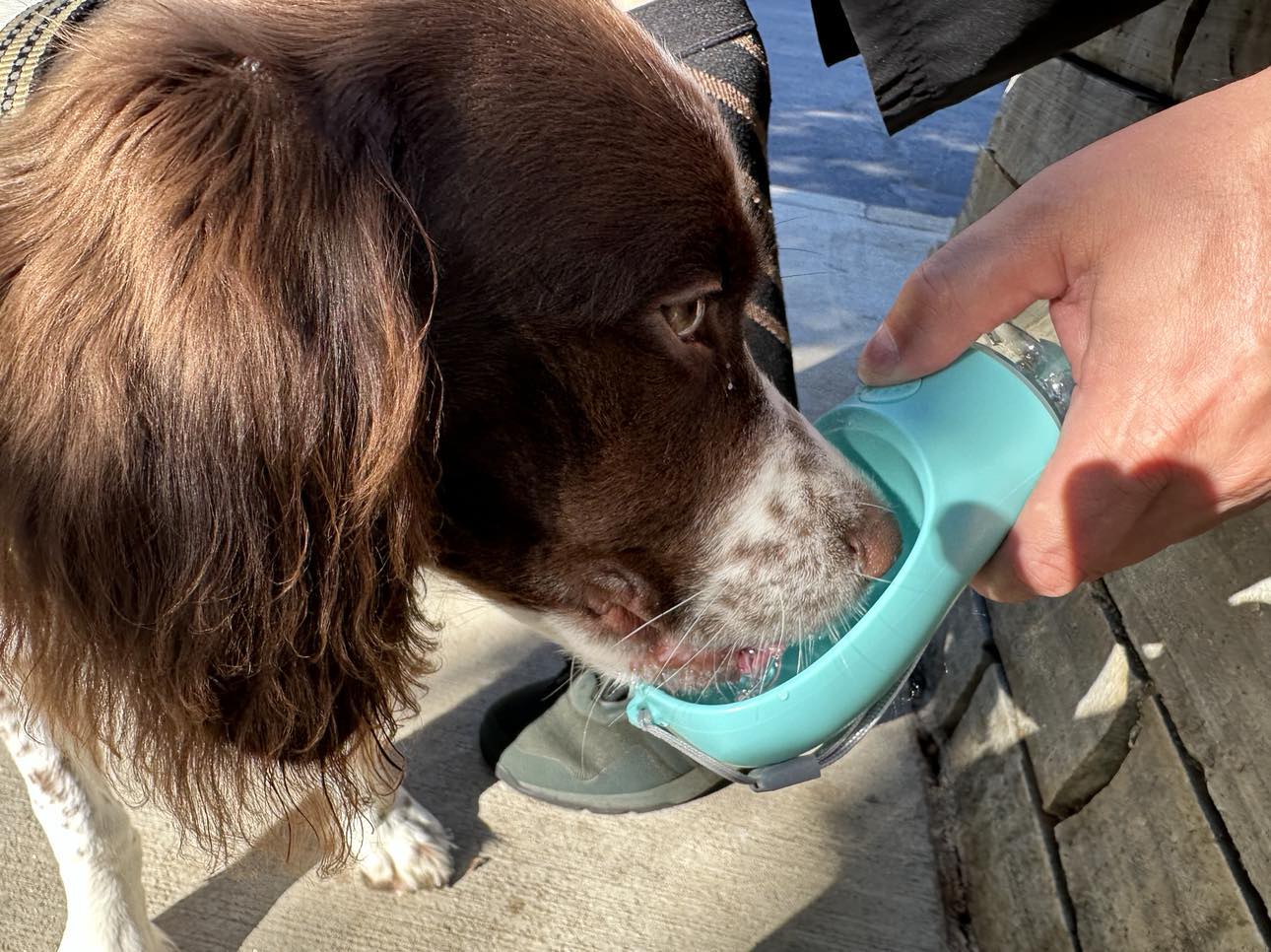Potty training is a crucial aspect of raising a well-mannered and hygienic canine companion. By instilling good bathroom habits early on, you lay the foundation for a harmonious relationship with your furry friend. However, the journey to a reliably trained puppy can be fraught with challenges, particularly when unfavorable weather conditions come into play. Rain, snow, cold temperatures, and storms can create obstacles that test both the patience of pet owners and the resolve of eager pups.
Consistency is the cornerstone of successful potty training. Teaching your puppy where and when to relieve themselves establishes a routine that promotes learning and understanding. A well-trained dog not only contributes to a pleasant living environment but also fosters a stronger bond between owner and pet. Consistent potty training also plays a significant role in preventing accidents and maintaining a clean home.
Enter bad weather, a formidable adversary in the quest for a house-trained pup. Rainy days, icy sidewalks, and chilling winds can deter even the most enthusiastic puppy from venturing outdoors. These conditions not only complicate your efforts but can also lead to confusion and setbacks in your puppy’s training progress. It’s during these moments that the patience and dedication of pet owners are truly put to the test.
The primary objective of this article is to equip puppy owners with a comprehensive toolkit of strategies and techniques to navigate the challenges of potty training in adverse weather. By understanding the unique dynamics of training during bad weather and employing specialized approaches, you can ensure that your pup continues to make strides in their potty training journey, regardless of rain, snow, or stormy skies. We will delve into creative indoor alternatives, tips for encouraging outdoor potty behavior, ways to overcome setbacks, and the judicious use of technology to facilitate this process. By the end of this article, you will be armed with the knowledge and confidence to potty train your puppy effectively, rain or shine.
Understanding the Basics of Potty Training
Puppy’s Learning Capabilities and Stages
Puppies, like human infants, undergo crucial developmental stages as they learn about the world around them. Understanding your puppy’s cognitive and physical capabilities is essential for effective potty training. In the early weeks of a puppy’s life, their bladder and bowel control are limited. As they grow, they become more capable of holding it in and comprehending the concepts of potty training.
Significance of Routine and Positive Reinforcement
Establishing a consistent routine is the cornerstone of successful potty training. Puppies thrive on predictability, and a well-structured schedule helps them anticipate when it’s time for a potty break. Consistency extends beyond timing; it also involves using positive reinforcement techniques. Praise, treats, and affection serve as powerful motivators for your puppy. Celebrating each successful potty trip outdoors reinforces the desired behavior and encourages them to repeat it.
Establishing a Designated Potty Area
Creating a designated potty area, whether indoors or outdoors, is a fundamental aspect of potty training. For outdoor training, choose a spot in your yard that is easily accessible and consistently use the same location. The scent of previous potty breaks will encourage your puppy to eliminate in that area. If you’re dealing with bad weather, having an indoor potty area is invaluable. Set up a specific space with training pads or artificial grass to mimic the outdoor experience. Over time, your pup will associate this spot with going potty.
By comprehending your puppy’s learning abilities, adhering to a structured routine, and designating a specific potty area, you set the stage for a successful potty training journey. These foundational principles will be instrumental in helping your pup overcome the challenges posed by bad weather during their training process.
Factors Influencing Potty Training in Bad Weather
Types of Bad Weather: Rain, Snow, Cold, and Storms
Bad weather comes in various forms, each presenting its own set of challenges for potty training. Rain can discourage your puppy from venturing outside, while snow may pique their curiosity and playfulness. Cold temperatures can be uncomfortable, especially for smaller or short-haired breeds, and storms can be downright frightening. Recognizing how different weather conditions affect your puppy will help you adapt your training approach accordingly.
Puppy Breed and Size Considerations
The breed and size of your puppy play a crucial role in how they handle bad weather. Smaller and toy breeds are more sensitive to extreme cold, making them more resistant to outdoor potty trips during frigid temperatures. On the other hand, larger breeds may be more resilient but still require careful monitoring in severe weather. Understanding your puppy’s specific needs and tolerances will guide your decisions when facing adverse conditions.
Impact of Bad Weather on Puppy Behavior
Bad weather can significantly influence your puppy’s behavior and attitude towards potty training. Some puppies might become hesitant or fearful of going outdoors during storms or heavy rain, leading to accidents indoors. Others might exhibit hyperactive behavior during snowfall. Cold temperatures may cause them to rush through potty breaks, affecting their ability to fully empty their bladders. Being aware of these behavioral shifts allows you to provide appropriate guidance and support to help your puppy stay on track.
Considering these factors is vital for devising a customized approach to potty training that aligns with your puppy’s individual needs and the prevailing weather conditions. Tailoring your strategies to account for these influences will help mitigate setbacks and foster a more positive training experience for both you and your furry friend.
Preparation and Indoor Alternatives
Create a Suitable Indoor Potty Area
When bad weather strikes, having a well-designed indoor potty area can be a lifesaver for both you and your puppy. Choose a location that is easily accessible and away from high-traffic areas. This designated spot should be consistent to avoid confusion and help your pup understand where they should go potty when the weather is unfavorable.
Use Training Pads or Artificial Grass
Training pads or artificial grass are invaluable tools for indoor potty training. Training pads are absorbent and help contain messes, while artificial grass mimics the outdoor experience and provides a natural surface for your puppy to relieve themselves. Introduce your puppy to these alternatives by placing them in the designated indoor potty area. Gradually reduce the size of the training area as your pup becomes more adept at using it, ultimately leading to a smoother transition to outdoor potty breaks when the weather improves.
Positive Association with the Indoor Potty Spot
Creating a positive association with the indoor potty area is pivotal in reinforcing your puppy’s understanding of where to go when the weather is inclement. Use treats, praise, and a cheerful tone of voice when guiding them to this spot. Consistency in your reactions and rewards will help your pup recognize that this indoor alternative is an acceptable place to relieve themselves. Additionally, avoid scolding or negative reinforcement if accidents occur indoors; instead, focus on redirection and reinforcing the correct behavior.
By establishing a well-thought-out indoor potty area, introducing training pads or artificial grass, and cultivating a positive association with this designated spot, you provide your puppy with a practical solution for potty breaks during bad weather. These indoor alternatives serve as vital tools in maintaining your puppy’s training progress and preventing setbacks caused by adverse weather conditions.
Practical Strategies for Potty Training in Bad Weather
Monitor Weather Forecasts and Plan Accordingly
Staying informed about upcoming weather conditions is essential for effective potty training during bad weather. Keep an eye on weather forecasts, and if you anticipate inclement weather, plan your puppy’s potty breaks accordingly. This proactive approach allows you to make timely decisions and avoid unexpected challenges when taking your puppy outdoors.
Adjust the Potty Schedule Based on Weather Conditions
Flexibility is key when adapting to unfavorable weather. Modify your puppy’s potty schedule to accommodate the conditions outside. If a heavy downpour is expected, consider shortening the intervals between potty breaks. Alternatively, if you’re dealing with cold temperatures, be prepared for your puppy to take longer to complete their business. Adapting the schedule ensures that your pup has ample opportunities to go potty without discomfort.
Proper Clothing and Protection for Both Puppy and Owner
Dressing appropriately for the weather is crucial for successful outdoor potty breaks. Consider outfitting your puppy in a comfortable and weather-appropriate doggy jacket or sweater. For yourself, wear warm clothing and suitable footwear to make the experience more pleasant. Ensuring both you and your puppy are comfortable and protected from the elements will encourage more successful and productive potty trips.
Use Umbrellas or Covered Paths for Brief Outdoor Trips
If the weather isn’t too severe, brief outdoor potty trips can still be manageable with the right precautions. Utilize umbrellas to shield you and your puppy from rain or snow. Identify covered paths or areas near your home that provide some protection from the elements. While these trips may be shorter than usual, they can still be effective in reinforcing your puppy’s outdoor potty habits.
By keeping a watchful eye on weather forecasts, adjusting the potty schedule, dressing appropriately, and using protective measures like umbrellas, you can navigate the challenges of bad weather with more ease. These practical strategies ensure that your puppy’s potty training remains on track, even when Mother Nature doesn’t cooperate.
Overcoming Setbacks and Challenges
Dealing with Accidents Indoors
Accidents are an inevitable part of the potty training process, especially when bad weather disrupts your routine. When accidents happen indoors, it’s important to respond calmly and effectively. Clean up the mess promptly using an enzymatic cleaner to eliminate odors that might attract your puppy back to the same spot. Avoid scolding or showing frustration, as this can create fear and confusion in your puppy. Instead, focus on reinforcing positive behavior and redoubling your training efforts.
Patience and Persistence During Regression
Regression is a common challenge in potty training, especially when facing adverse weather conditions. Your puppy might exhibit setbacks and temporarily forget their training due to discomfort or anxiety caused by bad weather. During these times, it’s essential to exercise patience and maintain a consistent routine. Continue to guide your pup to their designated potty spot and reinforce positive behavior. With time and persistence, your puppy will regain their training progress.
Avoiding Punishment and Maintaining a Positive Atmosphere
Punishment has no place in potty training, even when setbacks occur. Yelling, scolding, or using physical force only creates confusion and fear in your puppy, hindering their learning process. Instead, maintain a positive and supportive atmosphere. Focus on rewarding successful potty trips and redirecting behavior when accidents happen. A nurturing approach fosters a strong bond of trust between you and your puppy, making the training journey more effective and enjoyable for both.
Navigating setbacks and challenges with a composed and constructive attitude is crucial in ensuring your puppy’s potty training success. By addressing accidents with patience, persisting through regressions, and maintaining a positive environment, you set the stage for a more resilient and adaptable pup, capable of handling adverse weather conditions with confidence.
Incorporating Socialization and Play
Playtime Indoors to Alleviate Cabin Fever
When bad weather confines you and your puppy indoors, it’s crucial to provide ample opportunities for play and exercise. Engage in interactive play sessions that cater to your puppy’s energy level and preferences. Tug-of-war, hide-and-seek, or gentle indoor fetch can help alleviate cabin fever and prevent boredom. Regular playtime not only burns off excess energy but also reinforces your bond and contributes to a well-rounded and content pup.
Interactive Toys and Mental Stimulation
Interactive toys are a fantastic way to keep your puppy mentally engaged and entertained, even when outdoor activities are limited. Puzzle toys, treat-dispensing toys, and chew toys offer mental stimulation and challenge your puppy’s problem-solving skills. These toys not only keep your pup occupied but also redirect their attention away from the gloomy weather outside, making indoor time more enjoyable.
Socialization Opportunities with Other Well-Behaved Dogs
If you have access to other well-behaved dogs in your home or neighborhood, consider arranging indoor playdates. Social interaction with other dogs provides valuable learning experiences and allows your puppy to burn off energy. Make sure the play environment is safe and supervised, and ensure that the other dog’s temperament is compatible with your puppy’s. Positive interactions with fellow furry friends can boost your puppy’s confidence and contribute to their overall socialization.
Incorporating socialization and play into your puppy’s routine during bad weather helps maintain their mental and emotional well-being. By engaging in indoor play, providing interactive toys, and offering socialization opportunities, you create a positive and stimulating environment that counteracts the challenges of being cooped up inside.
Incorporating Socialization and Play
Playtime Indoors to Alleviate Cabin Fever
When bad weather confines you and your puppy indoors, it’s crucial to provide ample opportunities for play and exercise. Engage in interactive play sessions that cater to your puppy’s energy level and preferences. Tug-of-war, hide-and-seek, or gentle indoor fetch can help alleviate cabin fever and prevent boredom. Regular playtime not only burns off excess energy but also reinforces your bond and contributes to a well-rounded and content pup.
Interactive Toys and Mental Stimulation
Interactive toys are a fantastic way to keep your puppy mentally engaged and entertained, even when outdoor activities are limited. Puzzle toys, treat-dispensing toys, and chew toys offer mental stimulation and challenge your puppy’s problem-solving skills. These toys not only keep your pup occupied but also redirect their attention away from the gloomy weather outside, making indoor time more enjoyable.
Socialization Opportunities with Other Well-Behaved Dogs
If you have access to other well-behaved dogs in your home or neighborhood, consider arranging indoor playdates. Social interaction with other dogs provides valuable learning experiences and allows your puppy to burn off energy. Make sure the play environment is safe and supervised, and ensure that the other dog’s temperament is compatible with your puppy’s. Positive interactions with fellow furry friends can boost your puppy’s confidence and contribute to their overall socialization.
Incorporating socialization and play into your puppy’s routine during bad weather helps maintain their mental and emotional well-being. By engaging in indoor play, providing interactive toys, and offering socialization opportunities, you create a positive and stimulating environment that counteracts the challenges of being cooped up inside.
Seeking Professional Guidance
Consulting a Veterinarian or Professional Dog Trainer
When potty training in bad weather becomes particularly challenging or if you encounter persistent setbacks, seeking guidance from professionals can provide valuable insights. A veterinarian or a certified dog trainer can offer personalized advice based on your puppy’s unique needs and circumstances. Veterinarians can rule out any underlying medical issues that might affect your puppy’s ability to follow the training regimen, while professional dog trainers can offer specialized techniques tailored to your puppy’s behavior and the challenges posed by adverse weather conditions.
Online Resources and Communities for Advice and Support
The digital age has brought a wealth of information to our fingertips, and online resources and communities can be a source of valuable guidance and support. Numerous websites, forums, and social media groups are dedicated to dog training and care. You can find expert articles, training videos, and connect with fellow puppy owners who are experiencing similar challenges. Engaging with online communities can provide a sense of camaraderie, as well as practical tips and emotional support during your potty training journey.
Relying on the expertise of professionals and tapping into online resources can empower you with knowledge and strategies to navigate potty training challenges in bad weather. Remember that seeking advice and support doesn’t signify a lack of capability but rather demonstrates your commitment to providing the best care and training for your puppy, regardless of the weather conditions.
Conclusion
Potty training a puppy in bad weather may present its share of hurdles, but the journey is a testament to the power of consistency. By adhering to a well-structured routine, utilizing indoor alternatives, and employing strategic techniques, you lay the foundation for a well-mannered and adaptable companion. Consistent training not only fosters good potty habits but also instills discipline and reinforces your role as a loving and responsible pet owner.
The potty training process is more than just a means to an end; it’s an opportunity to strengthen the bond between you and your puppy. The time spent guiding, teaching, and supporting your furry friend through the challenges of bad weather creates a unique connection. The trust and understanding developed during training lay the groundwork for a lifelong companionship built on mutual respect and love.
As you navigate the unpredictable terrain of bad weather, remember that patience and adaptability are your greatest allies. Stay committed to your puppy’s training journey, even when faced with setbacks. Approach each potty break with a positive attitude, and be prepared to adjust your strategies to accommodate changing weather conditions. Your puppy is learning from your example, and your resilience and positivity will inspire them to persist through challenges as well.
In the end, potty training in bad weather is a testament to your dedication as a pet owner. Your efforts, guided by knowledge and love, will lead to a confident, well-trained, and weather-savvy pup that can handle any conditions Mother Nature throws their way.

